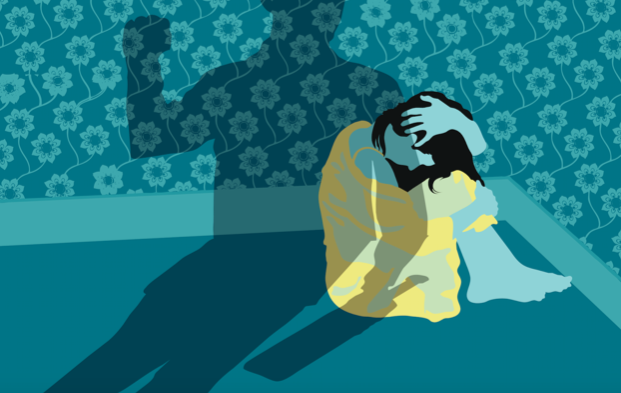What is mental abuse?
More stories from Olivia Marcantuono
A visual representation of mental abuse
When people think of mental abuse they often think of a dictator-typed parent. However, this isnt always the case. When children are mentally abused, they often don’t realize it until they’re older or see how other people’s parents treat them.
The abuser will often tell the child that circumstances are their fault or shame them for their looks or a habit or toy they enjoy. Some types of mental abuse include:
- Name-calling: consistently using derogatory names like “stupid” or “loser.”
- Derogatory pet names: adding a derogatory adjective to an endearing term like “my chubby cupcake” that reinforces a judgment of their body size regularly.
- Character assosianton: consistently reminding the child of their failures as an aspect of who they are. .
- Patronizing regularly discouraging the child or telling them directly that they are not smart enough to understand a simple concept
- Yelling: raising their voice (yelling, screaming, or cursing) at the child for a minor inconvenience
- Public embarrassment: pick fights with you, tell your secrets, or make fun of you in public
- Threatening: regularly using phrases like “I brought you into this world, I can take you out of it.” as a means to convince the child of ‘reality.’
- Joking: tease or make jokes that point out the child’s insecurities
- Put-down in interest: describing the child’s interests with negative terms like “annoying” and “childish.”
- Belittling accomplishments: telling the child that accomplishments have little value or merit.
- Insults of appearance: criticizing the child’s choice of clothing as “ugly” or commenting about their body size using phrases like “too fat” or “that clothing style is ugly” before leaving.
- Lecturing: constantly pointing out mistakes or failures repetitively
- Direct orders: making the child complete tasks they aren’t regularly responsible for, for example “stop doing whatever you’re doing and take the trash out.”
- And many more
The abuser will make the victim feel they are responsible for certain circumstances or situations when in reality the child has done nothing wrong. One habit an abuser will do is tell the victim to help them with a task and then criticize and blame the victim for mistakes. This will lower the victim’s self esteem to a point where they can no longer feel confident in what they do and they constantly question their actions and thoughts.
A common excuse for the abuser is to say “I never remember doing that,” or “You’re a liar!” Many abusers will use this excuse to make the victim take the blame or feel uncertain about the issue and make them question their past emotions and experiences. When an abuser starts to feel concerned for the victim it is not concerned for the victim’s feelings but of the consequences; they will often remind the victim that they love them and that they didn’t mean it. The cycle of mental abuse continues unrestrained.
A key thing for mental abuse victims to understand is that the abuse is not their fault and that there are ways to get out of the abuse. If the abuse is coming from your parents you should tell a teacher, trusted adult, or close friends about what is happening. Then call the mental abuse hotline, because any help is good help.
1-877-SAMHSA7 (1-877-726-4727) or 999


